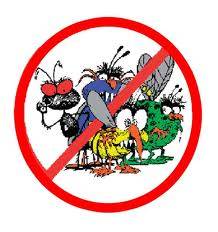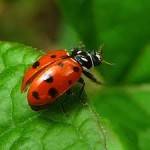One way to practice a more sustainable lifestyle is by eliminating harmful chemicals from your garden. This is actually easier to do now than it was a few years ago, because many companies are responding to the demands of home gardeners to grow their vegetables organically – free of chemicals.
Here are a few tips on how to keep your garden producing fresh fruits and vegetables without using harmful chemicals to keep those pesky critters away.
Pest Control
If your garden is plagued with pests, there are several things you can do before resorting to “pest control” chemicals.
First, several plants will actually deter predators from your garden. For instance, planting marigolds around the perimeter of your garden will help repel bugs and small critters. Check with your local nursery to find out what plants can repel the pests you have in your yard.
Other barriers can also be created to prevent rodents from getting into your garden. Chicken wire with small holes can be added around your garden area to keep rabbits out, and taller “cages” around your plants will help keep squirrels away.

Electric fences can also prevent unwanted guests; most of these are designed to surprise critters without harming them. While this may be a last resort, it could be deemed necessary if you have extreme problems with squirrels.
For an infestation of grub worms or insects, you may want to consider organic pest control. Bacillus thuringiensis (Bt) is a type of bacteria that can be purchased in spray or powder form. Bt is a natural way to kill off insects, yet it is not harmful to humans. It can be purchased at your local nursery.

Don’t forget about those natural predators in your garden. They can also be used to help get rid of unwanted pests. Adding ladybugs to your garden, for example, will help eliminate aphids from attacking plants. Having a pet dog or cat can also help get rid of unwanted rodents.
Not all invaders to your garden should be considered unwelcome, however. You actually need insects to help pollinate plants and decompose the soil. Earthworms are excellent at helping to decompose organic matter in the soil and provide nutrients for plant growth.
A general rule of “green” thumb is that unless insects are eating your plant leaves and harvesting your veggies before you get the chance, you may want to leave them alone. Part of living a sustainable lifestyle is learning which organisms can actually promote plant growth and a viable ecosystem.

